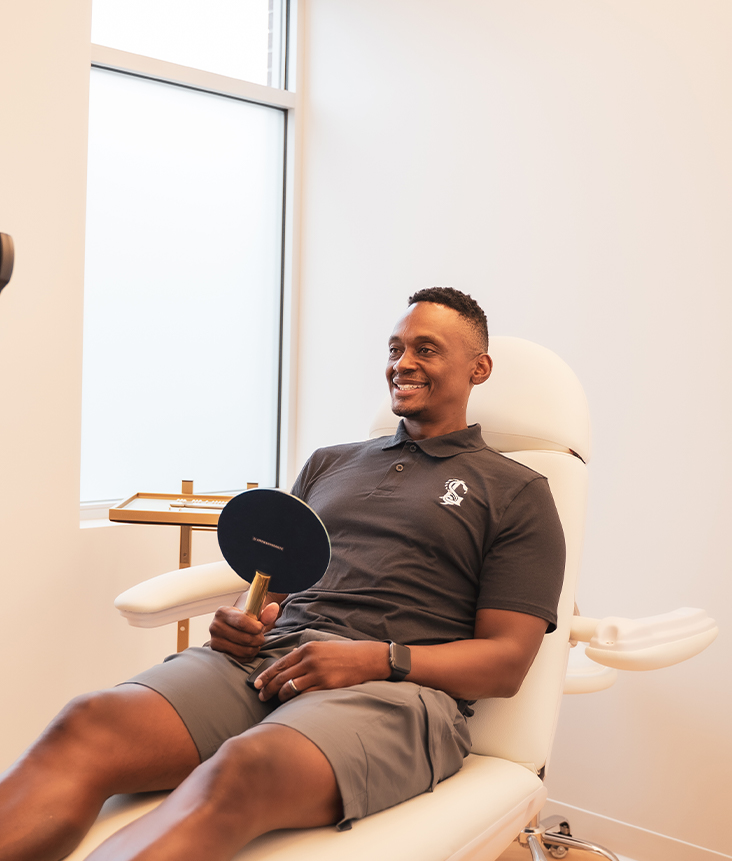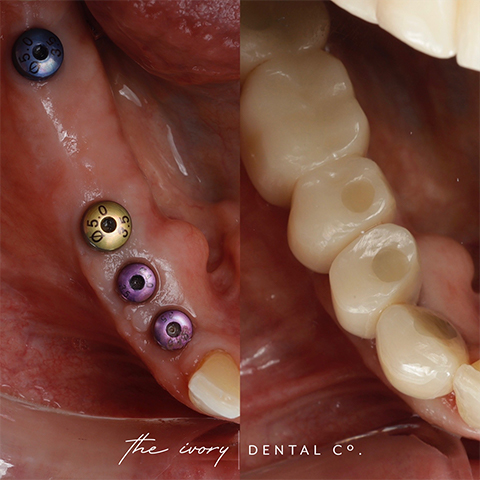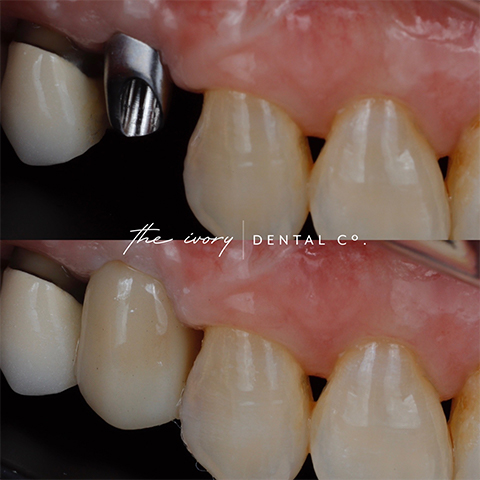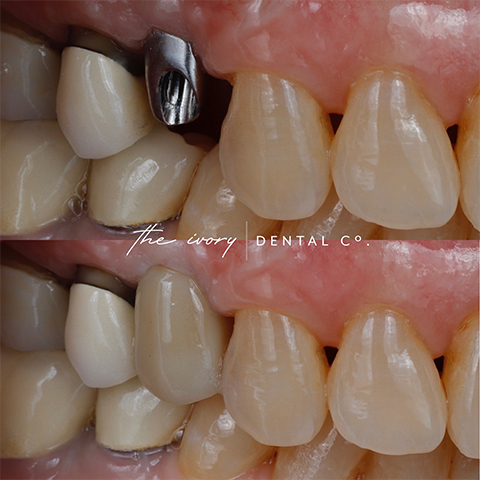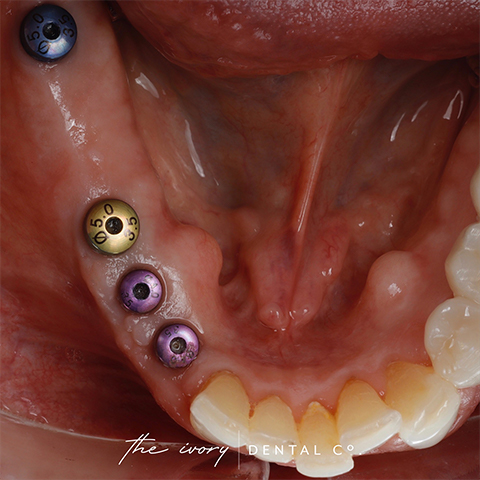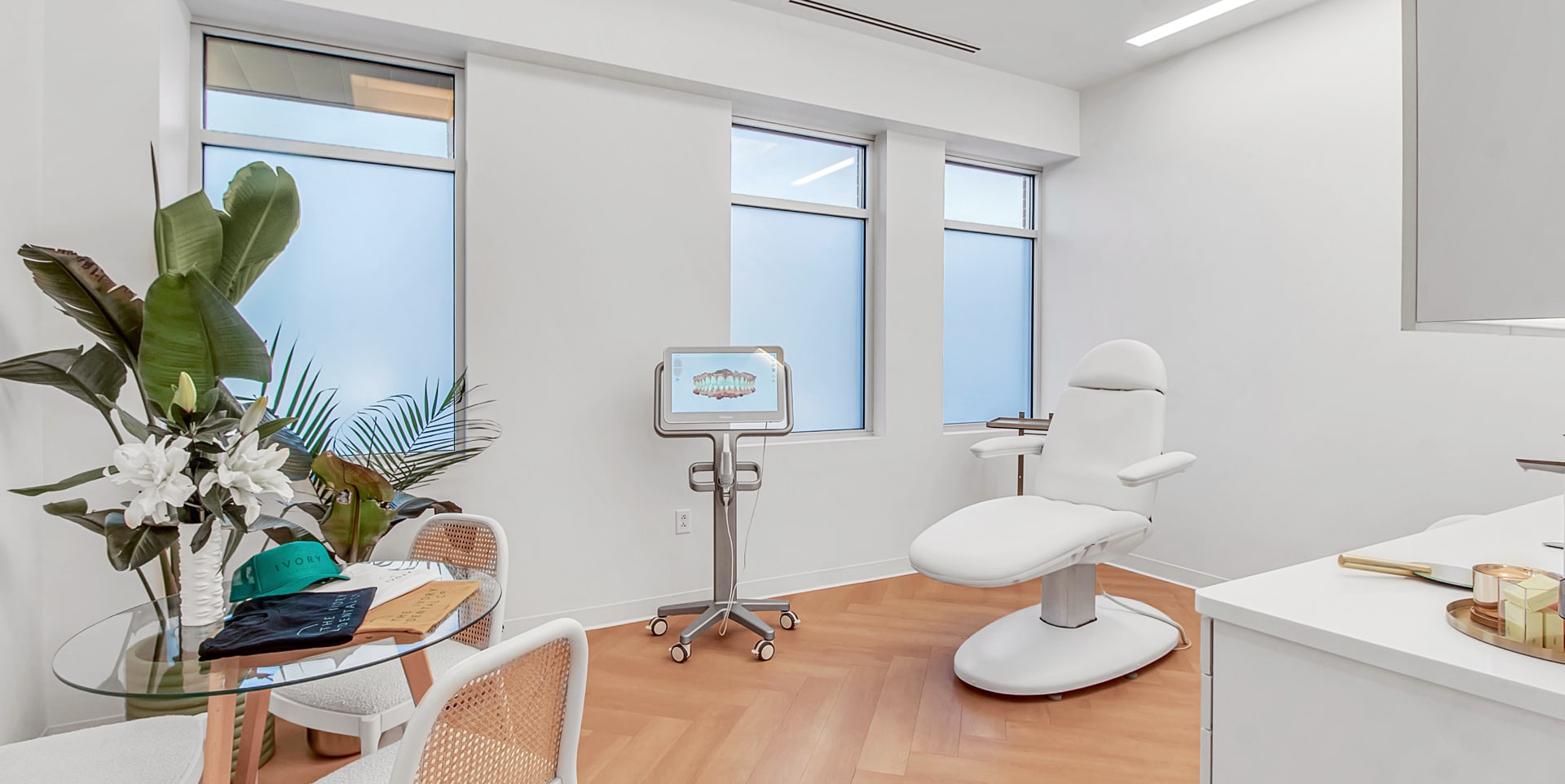
Restoring Your Smile
Parting with a tooth can affect your oral health and affect how you feel and look. At The Ivory, we want to help you show off your best smile. Over time, a missing tooth can affect how you talk, chew, and look.
Replacing your missing tooth with an implant can do wonders for your oral and overall health. Our team will take the time to walk you through the entire process and explore your options.
A dental implant can be a big decision, and we want to help make sure you know what to expect. Contact us to schedule your appointment today and explore if a dental implant is right for you.
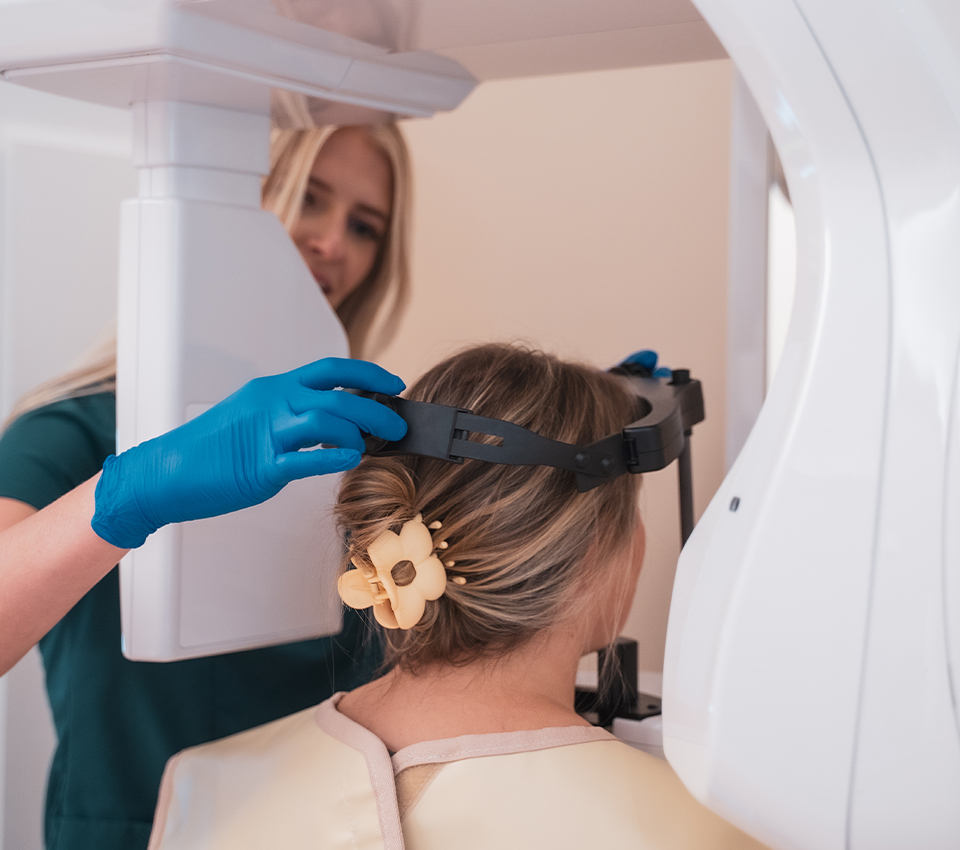
What Are Dental Implants?
Dental implants are small, metal posts that are surgically placed into your gums and jaw and can support a wide variety of replacement teeth. We offer both single-tooth implants, which use a dental crown, and full-arch implants, which replace all of your teeth with a new set.
We also handle the dental implant process in-house, including placements, restorations, and maintenance.

Our Office Atmosphere
With a surgical procedure like dental implants, we know that some patients can be nervous about what to expect. That’s why we’ve prioritized an office atmosphere designed to put our patients at ease. From the greenery all around the office to the cozy amenities we offer, your comfort is key.
So, while you’re waiting for your appointment, kick back and enjoy a beverage. You can set your mind at ease when you’re at The Ivory.

The Difference Dental Implants Make
Dental implants look and feel natural. They can last longer than other types of replacement teeth and help support the strength of your jawbone. Dental implants also will never move or shift, unlike dentures.
Some benefits of dental implants include:
- Helping to prevent bone loss
- Providing a natural look and feel
- Keeping adjacent teeth stable
- Restoring bite force
The Implant Process
Our dental implant process is comprehensive. During your initial consultation, Dr. Sweeney will perform an oral exam to confirm that you’re a good candidate for treatment. We use CBCT (cone-beam computed tomography) technology to take a 3D image of your jaw during the planning stage.
If you’re a candidate for implant surgery, Dr. Sweeney will make a custom surgical guide and schedule your surgical appointment.
Dr. Sweeney will place your implant and a temporary crown using the custom surgical guide to allow for precise placement and the best result based on your treatment plan.
Initial healing takes only 1–2 weeks. However, it will take up to 3–6 months for the implant to permanently attach to your jawbone. You will come back for multiple follow-ups during this time so that Dr. Sweeney can check on your healing progress and begin designing your replacement teeth.
Once your mouth has fully healed, your restoration, such as a dental crown, will be attached to your dental implant at your final appointment. You’ll be able to go home with a beautiful, brand-new tooth that can last and look great for decades to come.

Healing & Maintenance
Dr. Sweeney will provide specific steps to care for your implant, depending on the type of implant you receive. After your implants heal fully, you’ll be able to treat them just like a natural tooth, which means continuing to brush and floss as normal.
With proper care, your dental implants should last for years to come.

With You Every Step of the Way
A dental implant can revitalize your smile and benefit for your oral and overall health. Dr. Sweeney and the rest of the team are happy to answer any questions or concerns you may have during your consultation.
Contact us to schedule your appointment today, and we can discuss your options when it comes to dental implants.
Our Services

Our Location
Our Address
- 6043 Transit Rd. Suite 102
- East Amherst, NY 14051
Contact Information
- Phone: 716-221-0042
- Email: [email protected]
Find our building on Transit Road across from the Transit Valley Country Club located in the Transit Meadows Medical & Professional Park. The spacious parking lot offers plenty of convenient spots.
Our Hours
- Monday: 8:00 AM – 5:00 PM
- Tuesday: 9:00 AM – 2:00 PM
- Wednesday: 8:00 AM – 5:00 PM
- Thursday: 8:00 AM – 6:00 PM
- Friday: Available for phone calls
- Saturday: Closed
- Sunday: Closed
Our Google Reviews
What Our Patients Say
Lorem ipsum dolor sit amet, consectetur adipiscing elit, sed do eiusmod tempor incididunt ut labore et dolore magna aliqua. Ut enim ad minim veniam, quis nostrud exercitation ullamco laboris nisi ut aliquip ex ea commodo consequat. Duis aute irure dolor in reprehenderit in voluptate velit esse cillum dolore eu fugiat nulla pariatur.
Tainer
Lorem ipsum dolor sit amet, consectetur adipiscing elit, sed do eiusmod tempor incididunt ut labore et dolore magna aliqua. Ut enim ad minim veniam, quis nostrud exercitation ullamco laboris nisi ut aliquip ex ea commodo consequat. Duis aute irure dolor in r
Trevor
consectetur adipiscing elit, sed do eiusmod tempor incididunt ut labore et dolore magna aliqua. Ut enim ad minim veniam, quis nostrud exercitation ullamco laboris nisi ut aliquip ex ea commodo consequat. Duis aute irure dolor in reprehenderit in voluptate velit esse cillum dolore eu fugiat nulla pariatur.
Jessica

